ASF 010: Dejan Sarka interview
Introduction
Dejan Sarka, MCT and SQL Server MVP, is an independent trainer and consultant that focuses on the development of database & business intelligence applications. Besides projects, he spends about half of the time on training and mentoring. He is the founder of the Slovenian SQL Server and .NET Users Group. Dejan Sarka is the main author or co-author of sixteen books about databases and SQL Server. Dejan Sarka also developed many courses and seminars for Microsoft, SolidQ and Pluralsight.
This talk has taken place during SQL Saturday in Ljubljana, Slovenia on 9th December 2017 (Saturday).
What is Dejan’s favourite sports and which one he cannot plays?
How many MVPs were in the world when Dejan was given the title?
Check out his last book and find out what he called as a bullshit? Without what he cannot start each day?
Check these answers out in this episode.
Transcript
Kamil Nowinski: Hi, Dejan!
Dejan Sarka: Hi, Kamil!
KN: Thank you for taking my invitation for that interview. Could you introduce yourself?
DS: I’m Dejan Sarka. I mean like professionally I’m quite an old guy because I am in this business for more than 30 years. For last 22 years I deal with SQL Server from version 4.21 – if I remember correctly. That was the first version I started to work with.
KN: And at that moment you were doing the Sybase, yes?
DS: It was already SQL Server but it was the develop in parallel with Sybase. With 6.0 in ’96 I started to specialize for SQL Server only. And I think with 20 years ago we started to give courses about SQL Server. From 2000 I am MVP for SQL Server.
KN: From 2000? So basically 17 years. Where do you live?
DS: I live in Ljubljana in Slovenia.
KN: Here, in this place. How long?
DS: I was born here. I’ve spent most of my life here except that I lived in the mountains for 22 years in Alp area in the north-western part of Slovenia.
KN: What are you doing for your living?
DS: I deal with SQL Server so it means I do consulting, training, writing books and also, I am involved in projects but only if I am interested in them, like some data mining, advanced stuff, statistics and so on.
KN: So basically, you are an independent consultant.
DS: Yes.
KN: I know that you are an author of many books. How many do you have on your account right now?
DS: I’m finishing the 16th book.
KN: Are you currently working on the new one?
DS: This is the one I will finish in a couple of weeks and I am close to have a contract for the next one.
KN: Which one was the last one? What is the title and the subject of the book?
DS: The last one was SSIS 2017 Cookbook, one before that was the SQL Server 2016 Developer’s Guide – this is the one that we are currently updating to SQL 2017. I am planning the next one about data science with SQL Server.
KN: So will it be about the R language, Python…?
DS: R language, Python – all things that you can do advanced analytics.
KN: What kind of specific tools are you using during your work?
DS: I prefer for R code I prefer R studio, but for the other development I use visual studio including Python and for T-SQL I still prefer Management studio.
KN: Have you seen the new one? SQL Operational Studio.
DS: No, I haven’t. I haven’t played with that one yet.
KN: Do you like that idea to release the application for multiplatform application?
DS: It definitely gives you broader market, so why not? I mostly deal with the development side – BI development and this sort of things – so I don’t really care what is the platform behind it. So if I can get new market, why not?
KN: What do you think about MVP title those days? I know that you have that title for a very long time.
DS: It’s a group of advanced people, typically very nice because this is more like an appreciation for your community work. So without this community work, without sharing knowledge, a person probably cannot be an MVP. Although I was an old guy, I miss those times when there were just about 17 of us. Everybody knew each other. We were like one a little bit bigger family.
KN: At that time this award basically started?
DS: There were some which were already MVP for three or four years. Kalen Delaney, Neil Pike – they became MVPs even five years before me and they were the first two. Even Neil Pike was the first one. Because I remember when you were talking about good old days he was complaining that this program started to be overcrowded when Kalen joined.
KN: This interview is not only about technical stuff but also about the personal things. Do you have any hobbies? What is your hobby?
DS: I really do sports a lot. My favourite sport is basketball but unfortunately, I have completely broken knee. I still join my friends when they play basketball – I go to fitness. Then we go for a beer together. But most of my time now I spend on a bike. I also do some running, fitness and hiking. From the “love” perspective basketball is still the first one and since we are talking about basketball, it’s worth mentioning that the Slovenian Team is European Champion in basketball. And from “time” perspective, I spend most of the time on a bike.
KN: Did you achieve some competition?
DS: It is not for competition although I am pretty decent biker especially on the slopes but I am not doing this for competition.
KN: It is just for fun.
DS: Yes, you know, we are a group that frequently goes together on some longer trips and during warm season we meet at some specific points, pubs, bikers pubs – we meet regularly.
KN: How would you work your work-life balance? This is a very common topic right now especially for the guys who work as independent consultants. It could be very hard to achieve.
DS: I would say that in general in Slovenia we are pretty good at it which simply means that we try to work efficiently but also, we try to have a lot of free time. So, if you look at other Slovenian MVPs here: Mladen, Matija, Tomaz, nobody looks too tired, right? I think we are quite successful in managing the balance. Personally, I even try to change the balance in favor of free time – less work, more free time. But if you look at Mladen for example, he doesn’t look worn off.
KN: How can you do that? Is it because of the experience you have…?
DS: There are a couple of things. First, it depends on the person. If you are afraid to reject any job, any work, you think maybe the next time they will not call you and you will need them. But then you realize that around the corner there is always a new customer. So rejecting, why not? If I’m already busy, if I already have a full week for like 40 hours, why wouldn’t I reject and why would I work for 70 hours?
KN: What is currently your limit of the amount of time you spend on work weekly?
DS: Not so much weekly. You know, I still don’t like to work like 14 hours per day but if I have a course that already means 40 hours and then probably I need to do some writing, so it maybe 50 hours a week. But then I also try to have a few days when I do only writing, like two-three hours per day and then two-three hours of biking, and then five-six hours of beer [laugh].
KN: What kind of hints would you give to young people who want to start working on the market, like IT world or SQL Server?
DS: Well, this is a very broad and heavy question – what kind of hints and what is your message to young people. First of all, you know, I’m from a little bit older generation which means whatever I will say now it will not be probably so aligned with current general perception. So one thing is that I never planned my career which is now unacceptable – you should know where you want to be, where you see yourself in two or five years. Who knows? In my opinion it is a bullshit. The most important thing is that whatever you do, you do it professionally, you do it 100%. And then success will come. But also the important part is that you do what you like and what you are talented in. Another big bullshit is that the success is 99% of work and 1% of talent. It is probably the opposite. I am not talented for ballet so 99% of work wouldn’t help me. Sorry. And I would never enjoy it – something that I do that is against my body and mind. You know, my mind is like mathematical, logical. If something is illogical, I cannot accept it – it is really hard to accept it. So I would suffer going in that direction. So why would you go in that direction? Find what you like. What you like is usually the same thing what you are really capable of doing. And then just do it correctly, professionally. Never do it half way – this is most important. Then you see where you get.
KN: So do you have any daily habits?
DS: Yes. I really like to start the day with a cup of green tea. This is something that I do even if I have a flight at 3 a.m. – I will wake up at 1 a.m. and have my cup of tea. Otherwise I cannot start the day. I am not so passionate about coffee. I do like it but the morning cup of tea is definitely something that I have to do no matter of what. What other habits? I like to devote time for sport whenever I can. So let’s say, if I have a meeting 5 km away I’ll try to walk there if it’s possible – it I’m not in a hurry.
KN: How often are you travelling across the Europe or the wideworld giving the sessions for the events?
DS: On average this is more than one week per month and the maximum is about 10 days per month.
KN: How are you preparing yourself for a speech?
DS: First I want to get the idea what I want to say, what I want to explain. I try to make a story out of it. Then I think how I will enforce this story with demos, so then I write the code and prepare the demos. And from this point it is simple. Then I just add slides, maybe some graphics if it has some good idea. That’s it.
KN: And you prepare just highlighting some special preparation, like repeating the subject, refreshing the idea in your mind before you start session?
DS: I’m doing this like for 20 years, so it is kind of a part of my life. Whenever I am solving some real-life problem as I’m consulting or whenever I’m writing some books or articles, I immediately see that this is something that it is also worth talking about. So I kind of get the idea for the presentations in advance. And from that point it is usually easy.
KN: Yes, you have a lot of practice and you don’t need special preparations.
DS: As I said, typically these presentations come from other work. So I already know the subject, I have already worked on the subject. It typically starts from the other side. When I do something – writing or consulting – I immediately get the idea that something could be interesting for the presentation as well.
KN: Let’s go back to the books. As I mentioned you are the author of many books. On the market we can download from the Internet a bunch of the free books nowadays. Do you think it is still worth to release the paper books or writing the books?
DS: There are many positive things here about writing the books. This free stuff is written usually very quickly but not so deeply. There is limited knowledge inside them. I’m not saying that in generally everything is bad but a lot of the time this is just about what’s new in SQL Server, what’s new in that product – the jump start to something. But if you really want to get deeper knowledge about it, it is worth investing in more advanced books. From writing perspective, yes – all of that free stuff is affecting your income. But there are many other positive things. First of all, you learn a lot. You know, whenever you do any development, any consulting, you always focus very narrowly on the problem and once you solve it, you think that’s it. You think you solved every problem in the world. When you write the book you really need to check everything to get the full story to, to check all possibilities not just…
KN: Yes, it broadens your perspective.
DS: Yes, so this is how you get to really broad and also learn the deep knowledge which is very, very rare. Typically, you have people with broad knowledge or people with deep and narrow knowledge. To get broad and deep knowledge, this is what writing a book is about. And this is a big advantage in the current world. You know, there are so many over-specialized consultants that write about solving things with a single tool. Or there are those who are more like already sales people. They know a little bit about everything. So it gives you at the same time broad and deep perspective. And what’s more, the paper book is still the best marketing tool – there is nothing better. A presentation or a conference like this, it’s great – maybe you are a good presenter, maybe you have a good day or have a perfect presentation, but the next one after you is the best presenter ever, so people will simply forget you – and all of your effort is lost from marketing perceptive. Books will be there on shelves for 10 years. You will more before they will replace it and throw it away. Recycle… So generations will see it and generations will know your name.
KN: And that way you make that they will remember about you.
DS: Exactly.
KN: Are you still learning something new about technology or people yourself during such conferences?
DS: Definitely. I still try to learn. Of course, not that much as I used to. I’m in the state that I forget more than I learn, but I still try to. You know, first I want to see what the new technologies are, where the world is going to and then I pick up what looks like something that I could like. And then I try to learn it.
KN: What do you think about this extension with the analytics language, like R and Python in SQL Server engine?
DS: I think it’s quite a good idea. They solved a couple of big problems with these data mining, data science machine learning projects. If you look especially at R, Open Source, typically it is not scalable, not very secure. So by having this in SQL Server we these scalable library and SQL Server Security – it’s finally enterprise ready. Same thing about Python. It is not so specifically analytical language, it is more general language. But for analytical part it gives really a lot of power to existing Python developers or even more to SQL Server developers for which R is maybe overkill. Having possibility to write some code in Python and get this still very huge power of powerful algorithms and with all of the security and scalability it is really useful for many people. So I think that finally this is enterprise ready. I’m not saying that data mining in analysis services is not enterprise ready but it is limited. It is limited with the number of algorithms. Is has all specific language – DMX (Data Mining Extensions) language – so it has limited audience. You have millions of R developers, millions of Python developers and millions of SQL developers. Now you can combine all of these worlds. And solving this problem with security scalability. So it seems like all of this data science is enterprise ready but also ready for even small and medium businesses. If you can have all this in express edition, why not?
KN: This is a good thing, right?
DS: Yes, it’s a great thing!
KN: So now all of those data scientists can migrate to SQL Server and use the new versions, use the Python or R.
DS: All SQL developers can switch to or improve their skills.
KN: Yes, with the courses from Microsoft to achieve the data science certificate.
At the end of our conversation – because we are sitting in one of the rooms at SQL Saturday in Slovenia, Ljubljana – tell me when did this conference start?
DS: The first SQL Saturday in Ljubljana was 5 years ago. This is the 5th one.
KN: From my perspective, I think that this is the one of the most popular SQL Saturdays in Europe, yes? Maybe even in the world, because some people from the USA are coming here.
DS: Yes. We have international speakers and even the audience. I guess, it’s quite popular.
KN: Do you remember how many submissions do you have this year?
DS: More than 150.
KN: All the best then. Thank you for having me this year.
DS: You’re welcome.
KN: Thank you very much. And thank you for accepting my invitation.
DS: Thank you.
KN: Thanks, Dejan.
Useful links:
Dejan’s Twitter: @DejanSarka
Dejan’s latest books:
SQL Server 2017 Integration Services Cookbook
SQL Server 2016 Developer’s Guide
Other books
About author
You might also like
ASF 032: Jennifer Stirrup interview
Introduction Jennifer Stirrup is a data strategist and technologist, Microsoft Data Platform Most Valuable Professional (MVP), Microsoft Regional Director, Microsoft Certified Trainer, founder of Data Relish Ltd, diversity and technical
ASF 013: James Rowland-Jones interview
Introduction James Rowland-Jones is a Principal Program Manager for Microsoft. He is passionate about delivering highly scalable solutions that are creative, simple and elegant in their design. James specializes in big
ASF 025: Rob Farley interview
Introduction Rob Farley is a Microsoft Certified Master, Microsoft Certified Trainer and is a recipient of the Microsoft MVP Award for SQL Server since 2006. Rob provides consulting and training

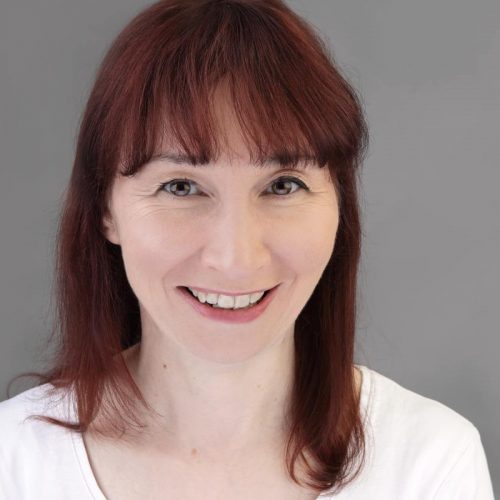
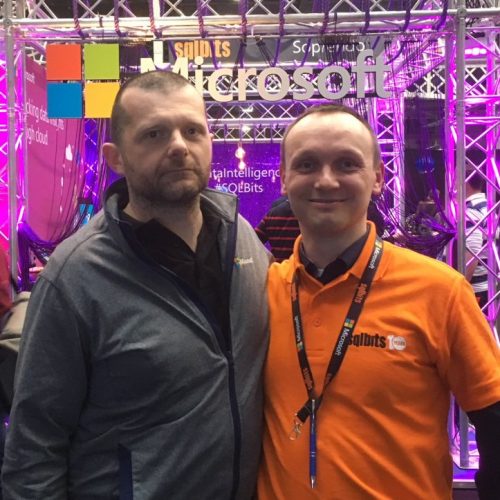
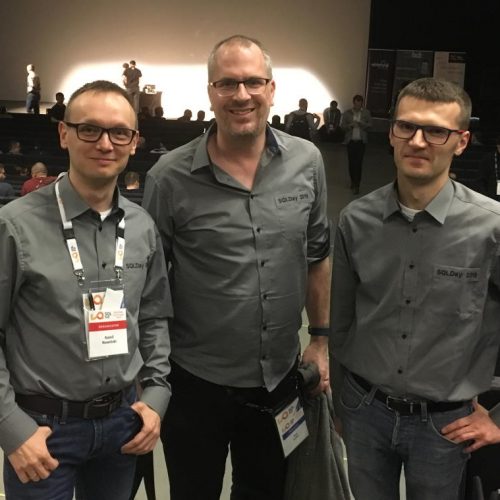
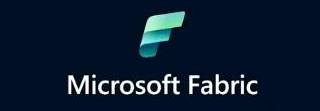

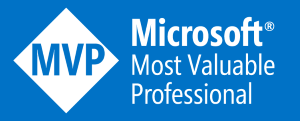

0 Comments
No Comments Yet!
You can be first to comment this post!